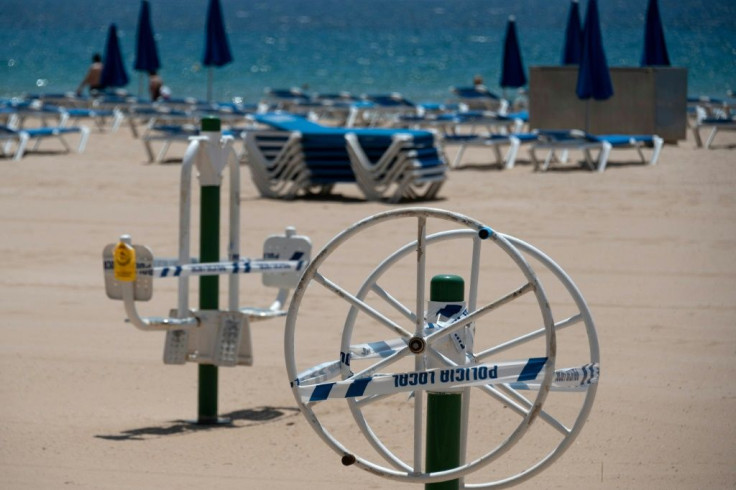Spain Tourism, Economy Severely Weakened By New Surge In COVID Cases

As Spain deals with a new rise in COVID-19 cases, the outbreak threatens to devastate the Mediterranean country’s tourism industry and economy. The Spanish Health Ministry reported 3,092 new cases on Friday, with 27,020 people having been infected with the disease over the last two weeks.
On Wednesday, Germany advised its nationals against travel to the three regions of Spain most affected by the virus: Catalonia, Aragon and Navarra. Some 11.2 million Germans traveled to Spain in 2019.
The U.K on Monday imposed a 14-day quarantine on all arrivals from Spain. In 2019, Brits made about 18 million trips to the Southern European country.
Spanish Prime Minister Pedro Sanchez has called the U.K.’s decision “misguided.” The U.K. also asked its nationals to avoid non-essential trips to the country.
The new travel advisories from Germany and the U.K. will certainly have a negative impact on Spain’s economy. Tourism makes up 12% of Spain’s GDP, and is also responsible for 11% of the country’s jobs. Prior to the pandemic, Spain normally received about 80 million visitors annually.
In the second quarter of the year, Spain’s GDP fell by 18.5%, as the country grappled with the virus. In March, Sanchez announced a 200 billion euro ($220 billion) stimulus package to boost the country’s economy amid the pandemic.
"Not only has the Spanish economy been one of the worst hit in the eurozone by the pandemic, it also looks set to make a much weaker recovery than its neighbors," analysts at Capital Economics said.
© Copyright IBTimes 2025. All rights reserved.





















